Tactical Formations
Siege and Conquest
Hero Synergy
Stratagems
Village Expansion
Petitions and Deliberations
City Administration
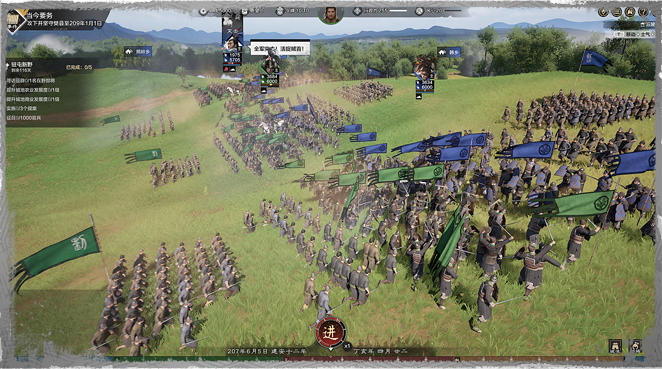
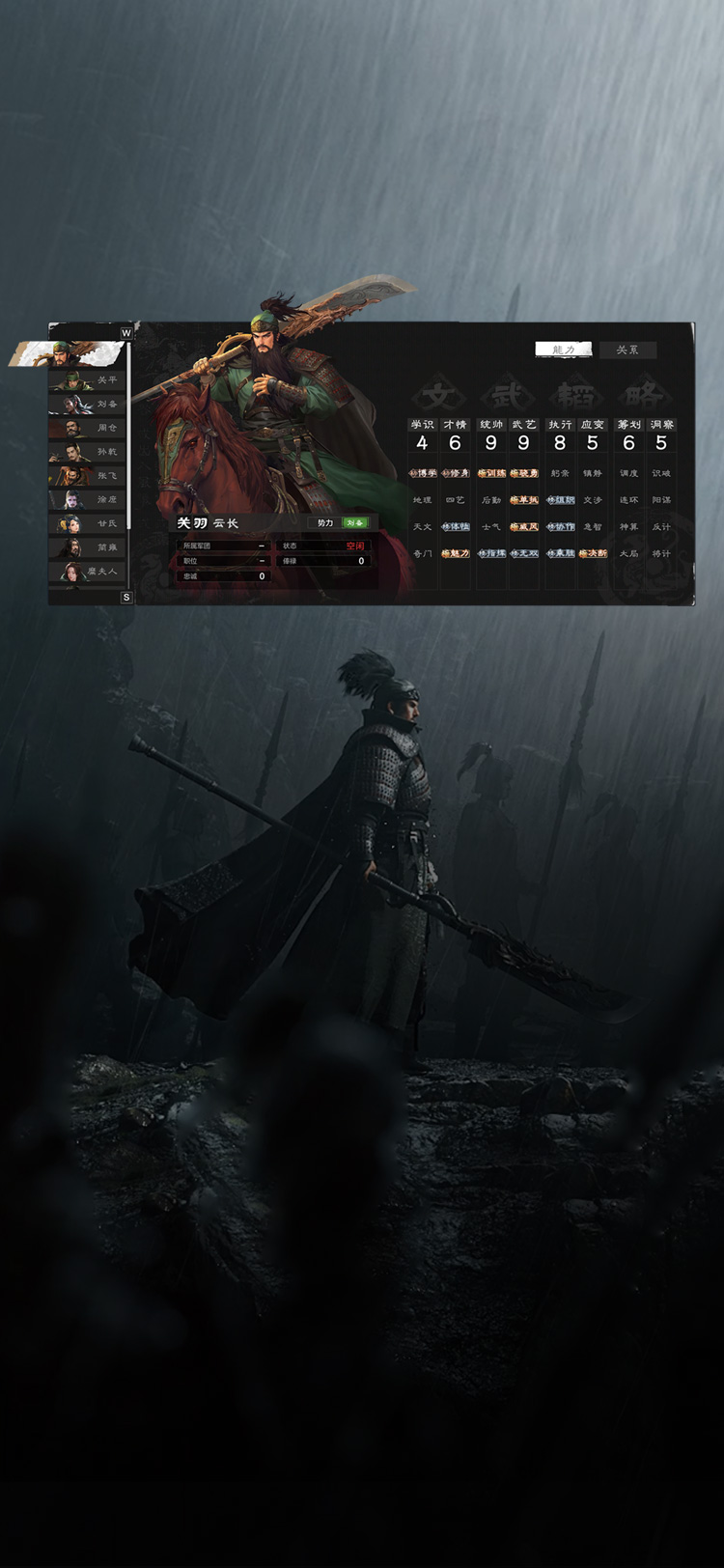
Redefining the Heroes of the Three Kingdoms
Each character is reimagined with eight distinct literary and martial attributes, paired with unique traits that influence both battlefield prowess and internal governance. Every hero plays a one-of-a-kind role in your grand strategy.
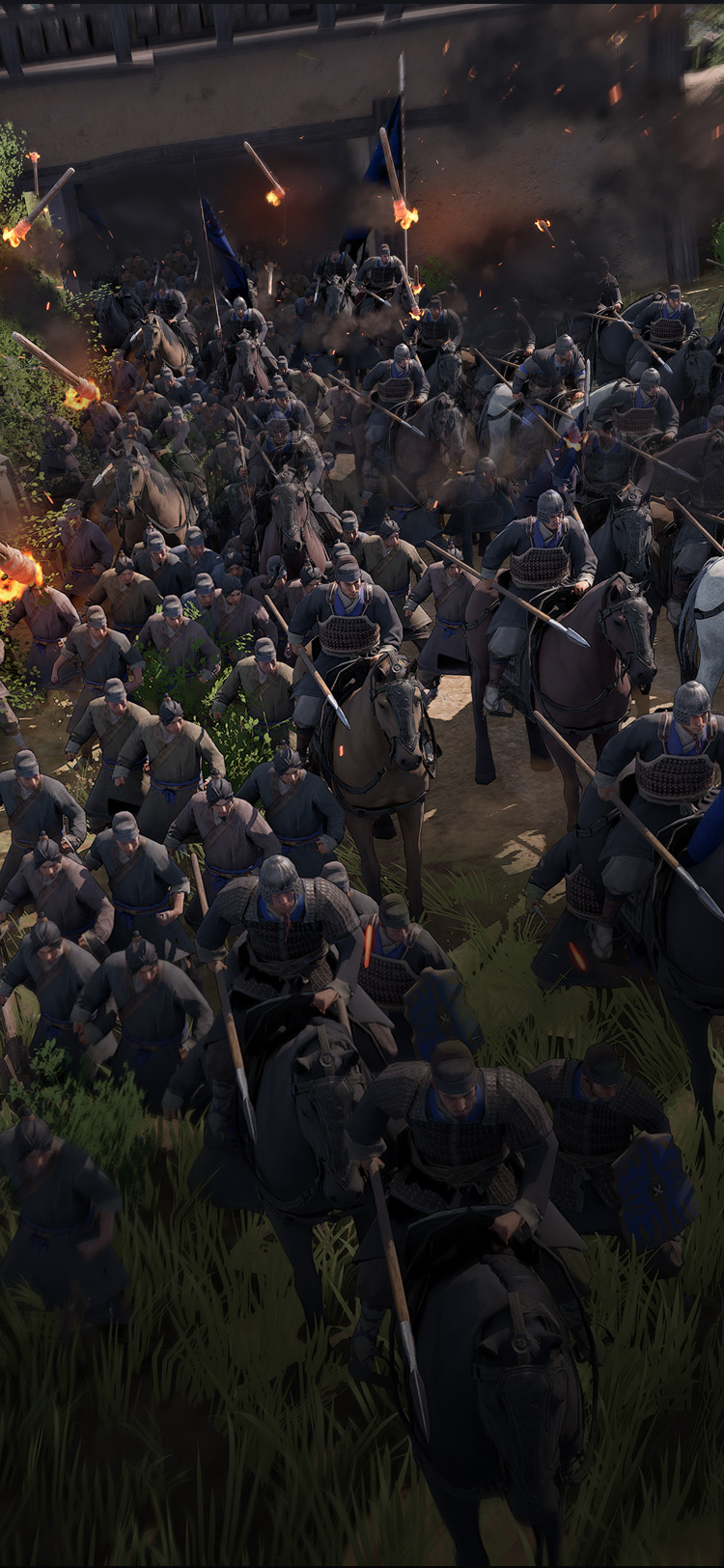
Command with Wisdom, Lead with Foresight
The ancient art of war begins with the camp. Choose your encampment site wisely—considering visibility, supply routes, water sources, and terrain.
As commander-in-chief, you’ll deploy formations and issue tactics from within, overseeing every battle maneuver.
The camp structure includes roles such as Vanguard, Center Guard, Rear Guard, Garrison, Strategist, Military Advisor, Logistics Officer, and Commander. Each fulfills a vital duty in your war machine.

A Seamless, Hyper-Realistic Strategic Map
Break free from the limitations of staged battles. All conflicts unfold in real time on a massive, seamless map. Dive into the immersive chaos of war as geography, weather, and positioning shape every engagement. Featuring historically accurate terrain and iconic battles of the Three Kingdoms era, this map breathes history into every skirmish.

Dynamic Weather, Ever-Changing Battlefields
With a true-to-life dynamic weather system, battles are affected by changing conditions—be it rain dousing fire tactics or fog disrupting visibility.
Weather is no longer just a backdrop—it’s a tactical factor demanding real-time adaptation.
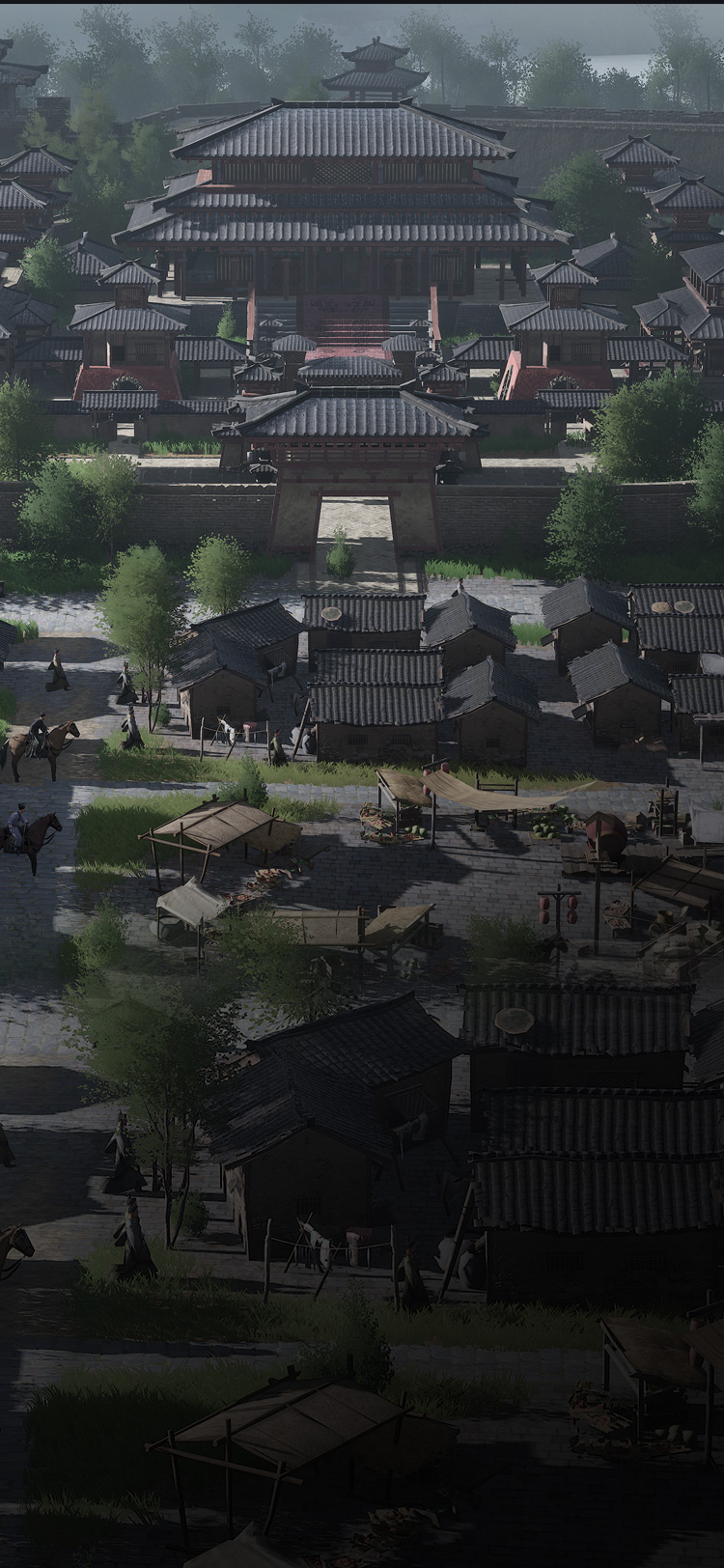
A Society Powered by the People, A World Rooted in Ancient China
Citizens choose their own paths—whether as scholars, farmers, artisans, or merchants. The rise and fall of these professions shape the development of your cities and the broader social landscape. This deep simulation of Han Dynasty society delivers a uniquely Chinese vision of pre-modern warfare and governance.
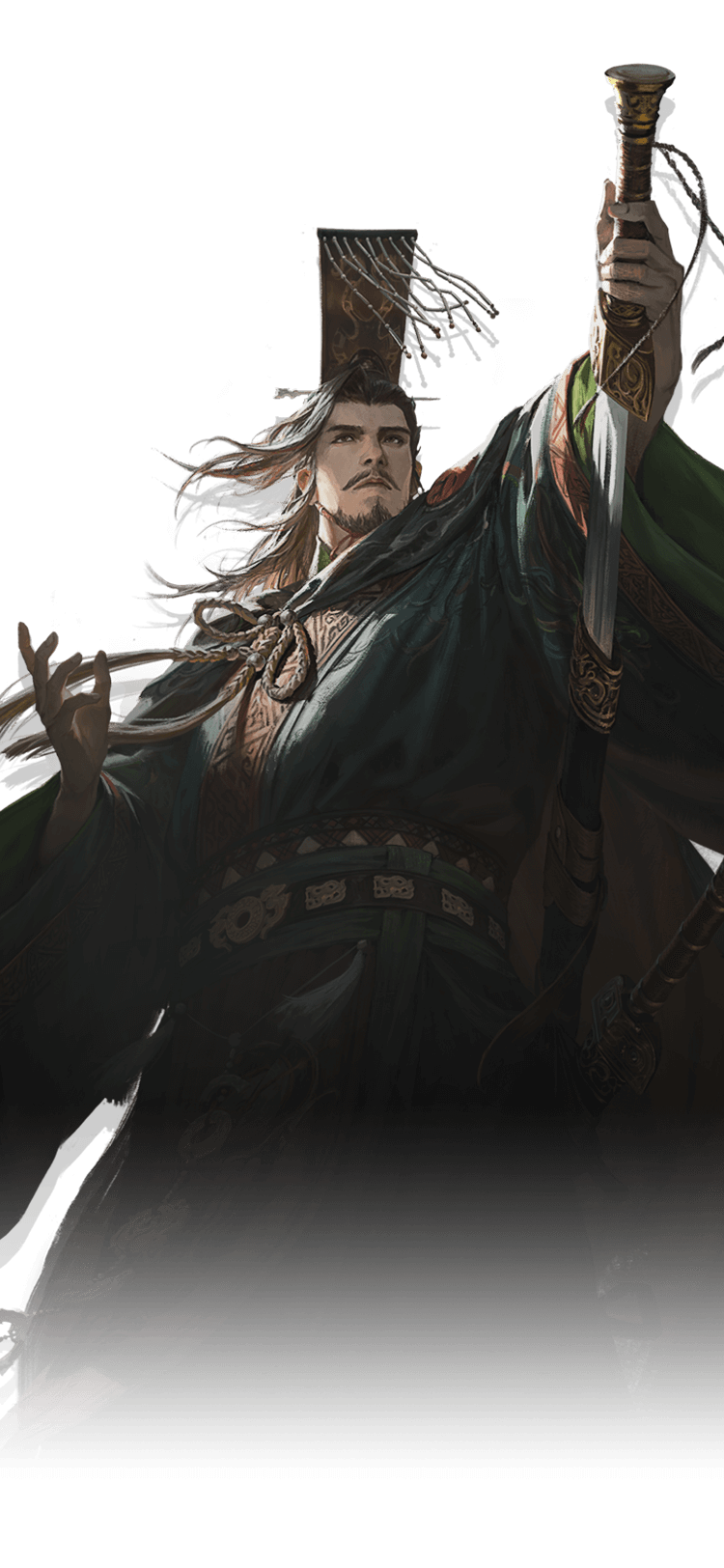

A descendant of Liu Sheng, Prince Jing of Zhongshan from the Western Han, Liu Bei became the founding emperor of Shu Han during the Three Kingdoms period. Known as “the First Ruler” in historical records, his early life was marked by hardship and wandering, serving under various warlords. After forming an alliance with Sun Quan, he defeated Cao Cao at the Battle of Red Cliffs and seized Jing Province, later expanding into Yi Province. In 221 CE, he proclaimed himself emperor in Chengdu. Though historians considered his political and military acumen inferior to Cao Cao's, they praised his perseverance, magnanimity, and ability to recognize and employ talent. Liu Bei once said, “It is by opposing Cao that my endeavors succeed.”
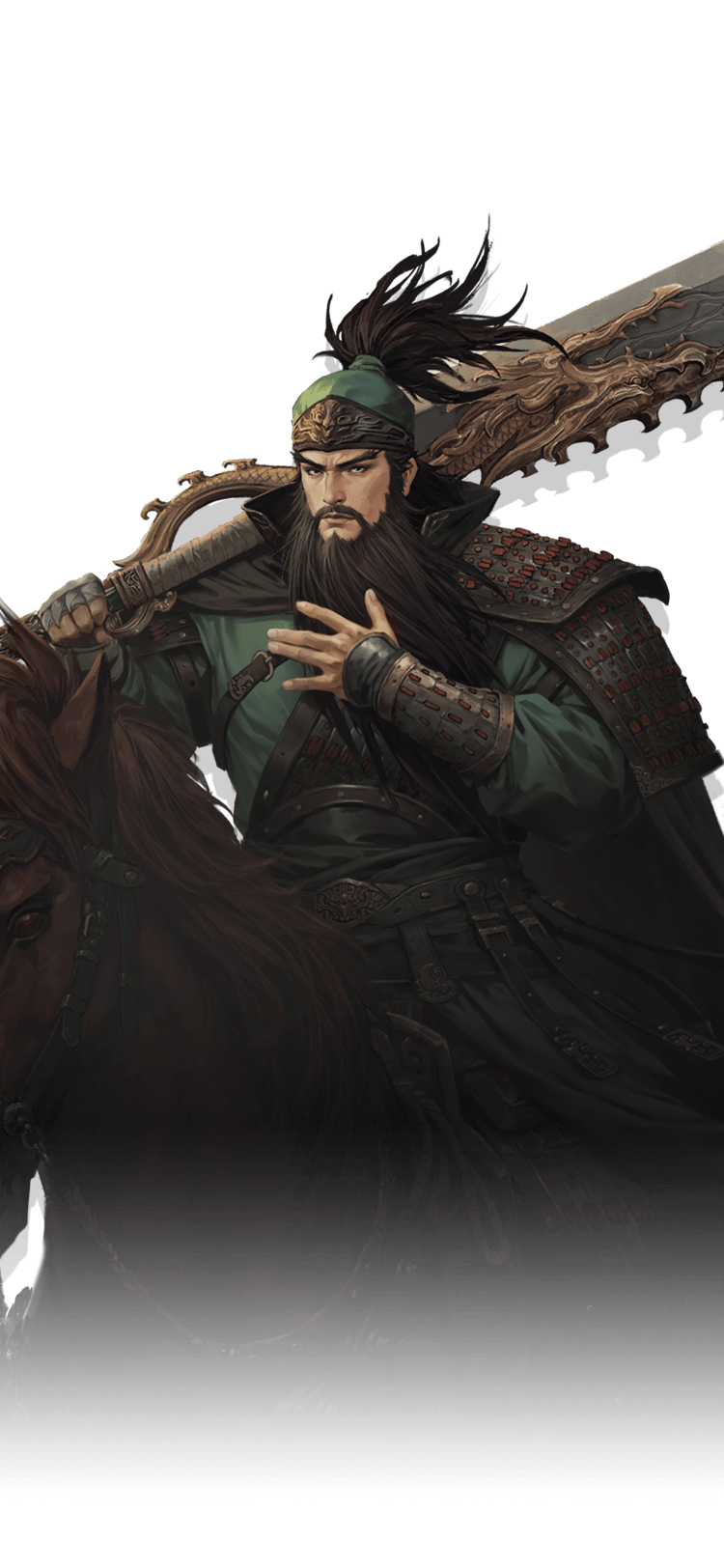

A revered general of Shu Han and sworn brother to Liu Bei and Zhang Fei. Known for his valor, Guan Yu famously slew the general Yan Liang at Baimapo while under temporary service with Cao Cao. After the Battle of Red Cliffs, he blocked reinforcements to secure Liu Bei’s conquest of Nanjun, and was appointed Governor of Xiangyang. His defense of Jing Province and victory at Fancheng, where he captured Yu Jin and killed Pang De, shook the realm. So powerful was his reputation that even Cao Cao considered relocating the capital to avoid him. However, he eventually fell in battle when surrounded by forces from both Cao Wei and Eastern Wu.
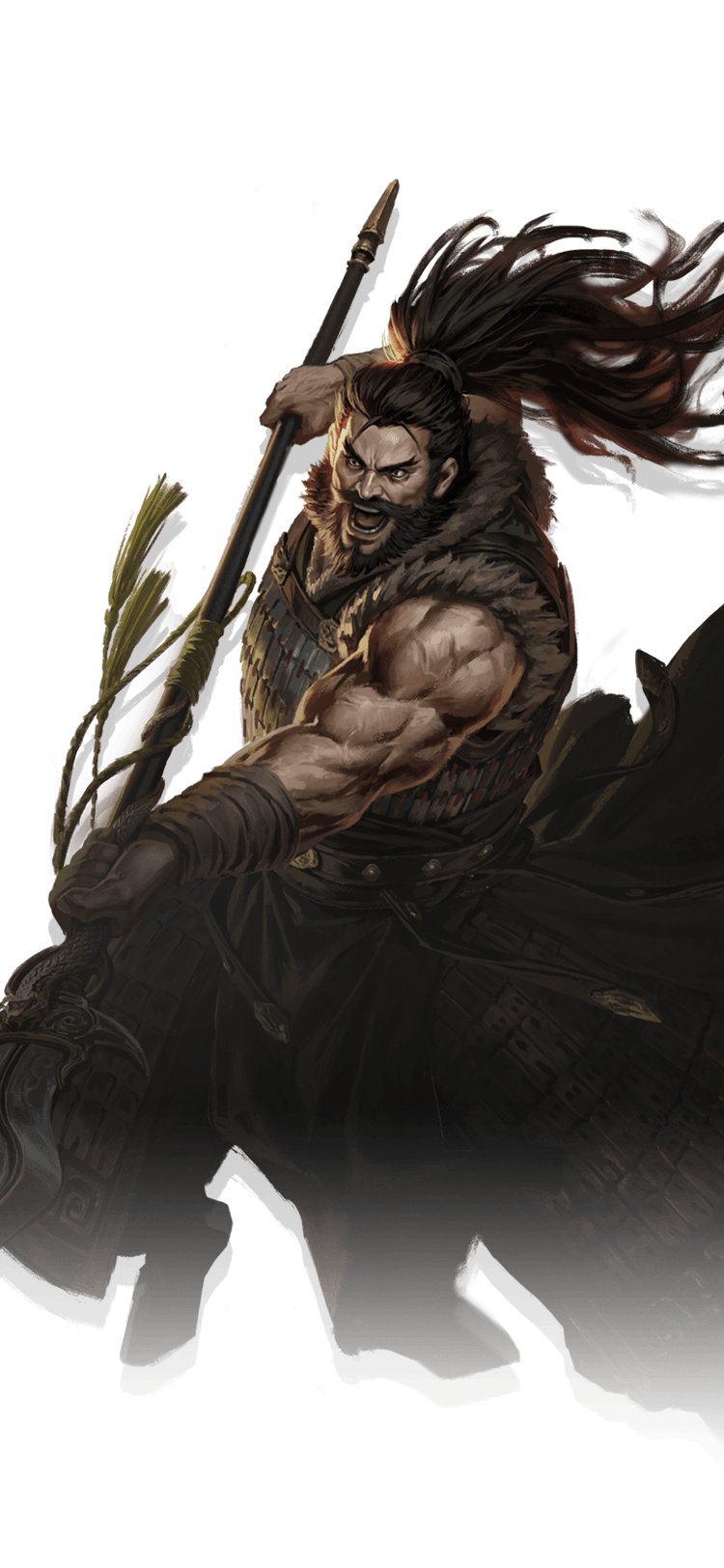

A famed general of Shu Han and sworn brother to Liu Bei. Known for his fierce loyalty and battlefield prowess, Zhang Fei held off Cao Cao’s army with just twenty riders at Changban Bridge. He spared General Yan Yan during the pacification of the west and played a key role in the Hanzhong Campaign. He rose to the rank of General of Chariots and Cavalry and was enfeoffed as the Marquis of Xixiang. He was later assassinated by his subordinates, Fan Qiang and Zhang Da. Posthumously titled "Marquis Huan" during the reign of Liu Shan.
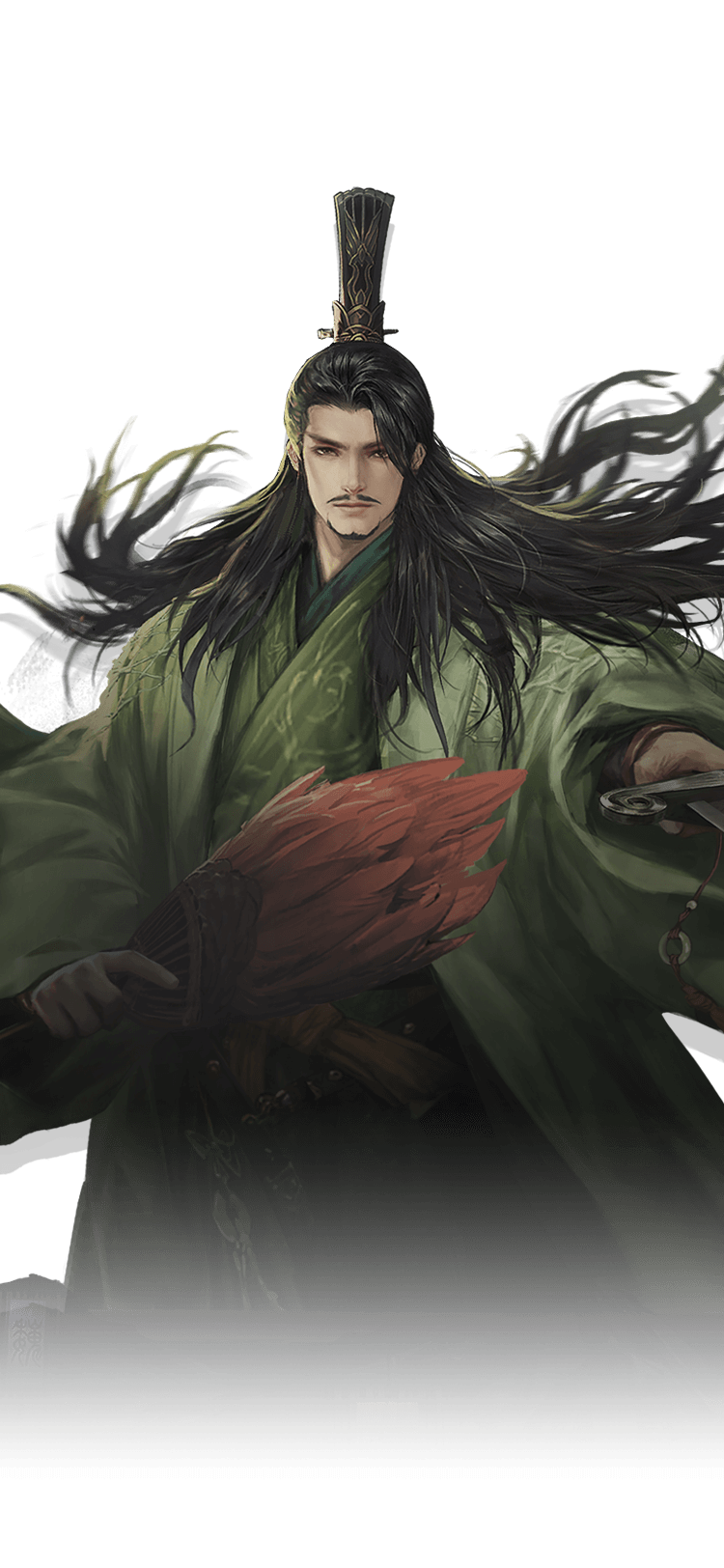

A legendary statesman and strategist, honored as the quintessential “virtuous chancellor” of history. He orchestrated the Sun-Liu alliance and was instrumental in the victory at Red Cliffs, laying the foundation for the tripartite division of China. Appointed Chancellor of Shu Han, he served loyally after Liu Bei’s death—reforming internal affairs, quelling southern rebellions, and leading five northern campaigns against Wei in pursuit of national unification. His final campaign saw a prolonged standoff with Sima Yi before dying from illness. He was posthumously titled "Marquis Zhongwu."
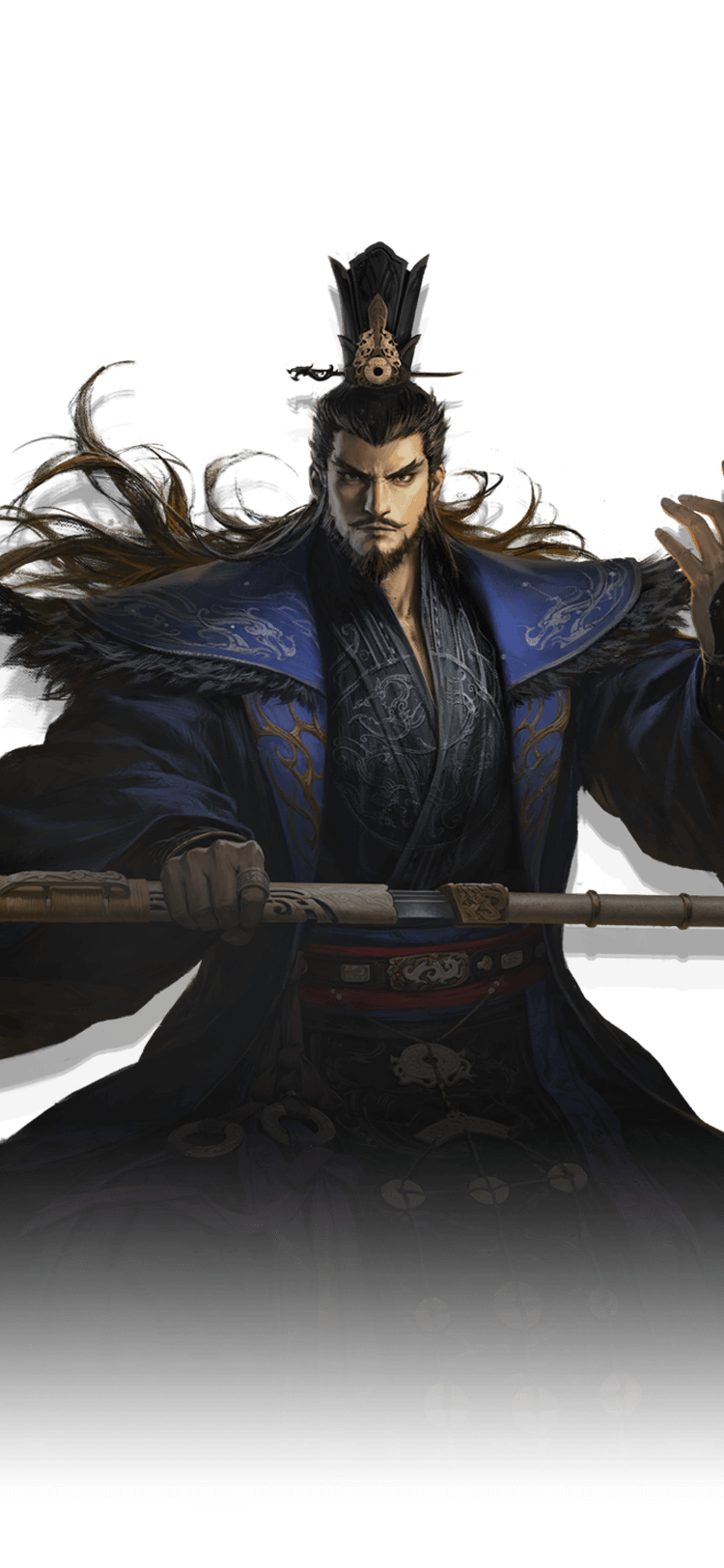

Founder of the Wei regime, Cao Cao was a military genius and astute statesman. Operating under the Han emperor’s name, he quelled internal warlords and subdued external nomadic tribes, unifying northern China. He implemented sweeping reforms to restore stability and economy, laying the groundwork for the rise of Cao Wei. History remembers him as a man of exceptional ability and ambition—“a hero of his time.”
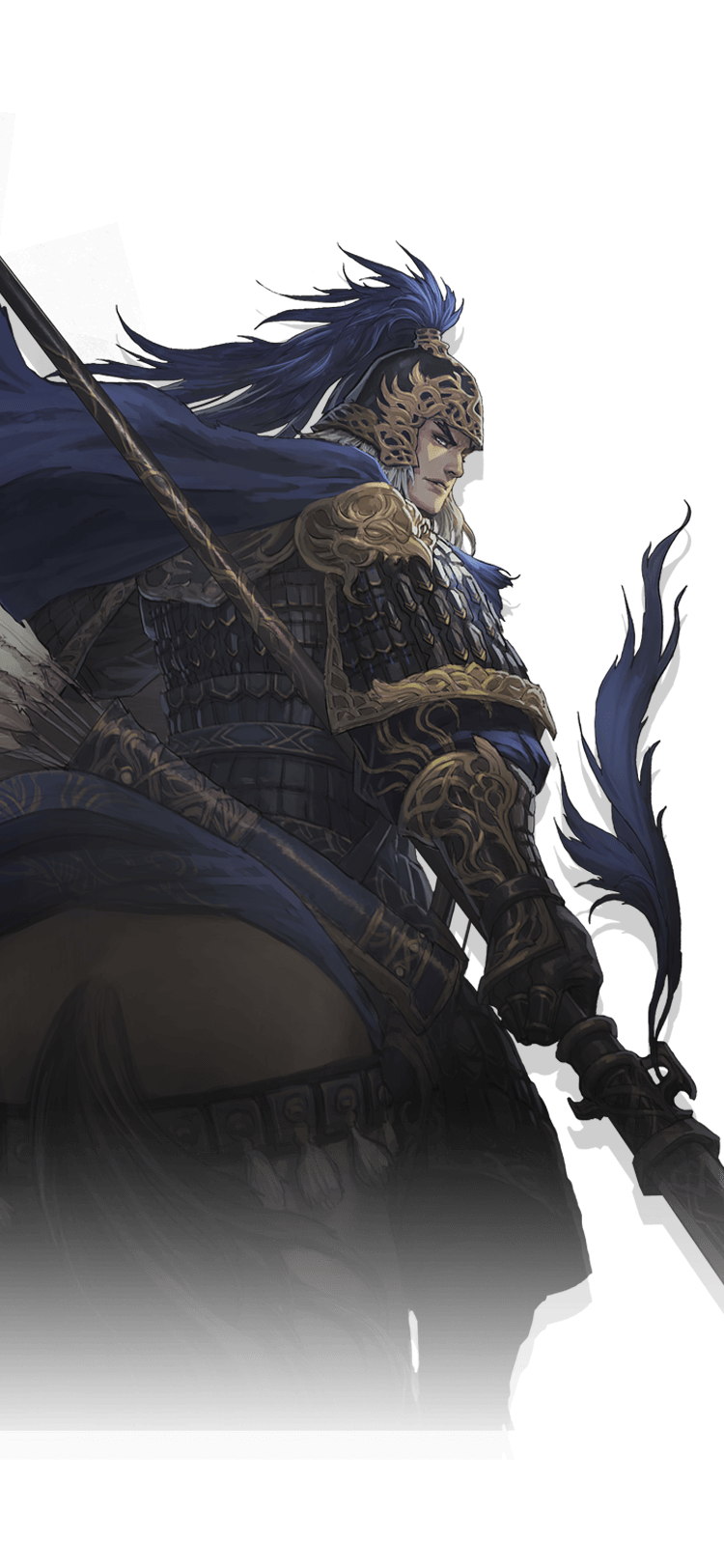

A renowned general of Cao Wei, Zhang Liao initially served Ding Yuan, Dong Zhuo, and Lü Bu before surrendering to Cao Cao. Distinguished in numerous campaigns, he earned lasting fame for his defense against Sun Quan’s forces. Even while ill, he successfully repelled Wu general Lü Fan. He died in 222 CE and was posthumously titled "Marquis Gang."
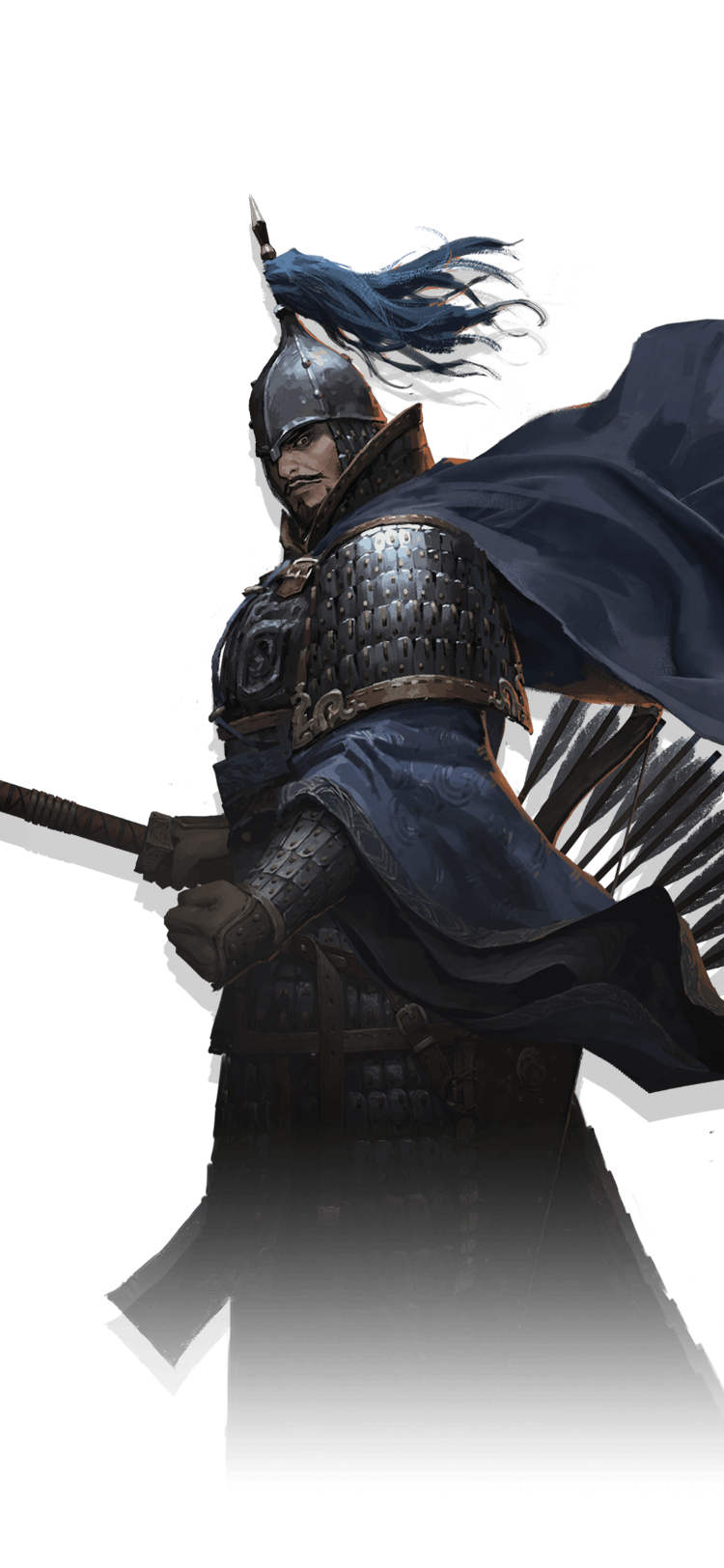

A cousin of Cao Cao and one of Wei’s core generals. He contributed to major campaigns against Yuan Shu, Tao Qian, and Lü Bu. Notably, he defended against Liu Bei at Guandu and defeated Yuan Shao’s army at Ji Luoshan. His military prowess was instrumental in securing northern dominance for Cao Wei.
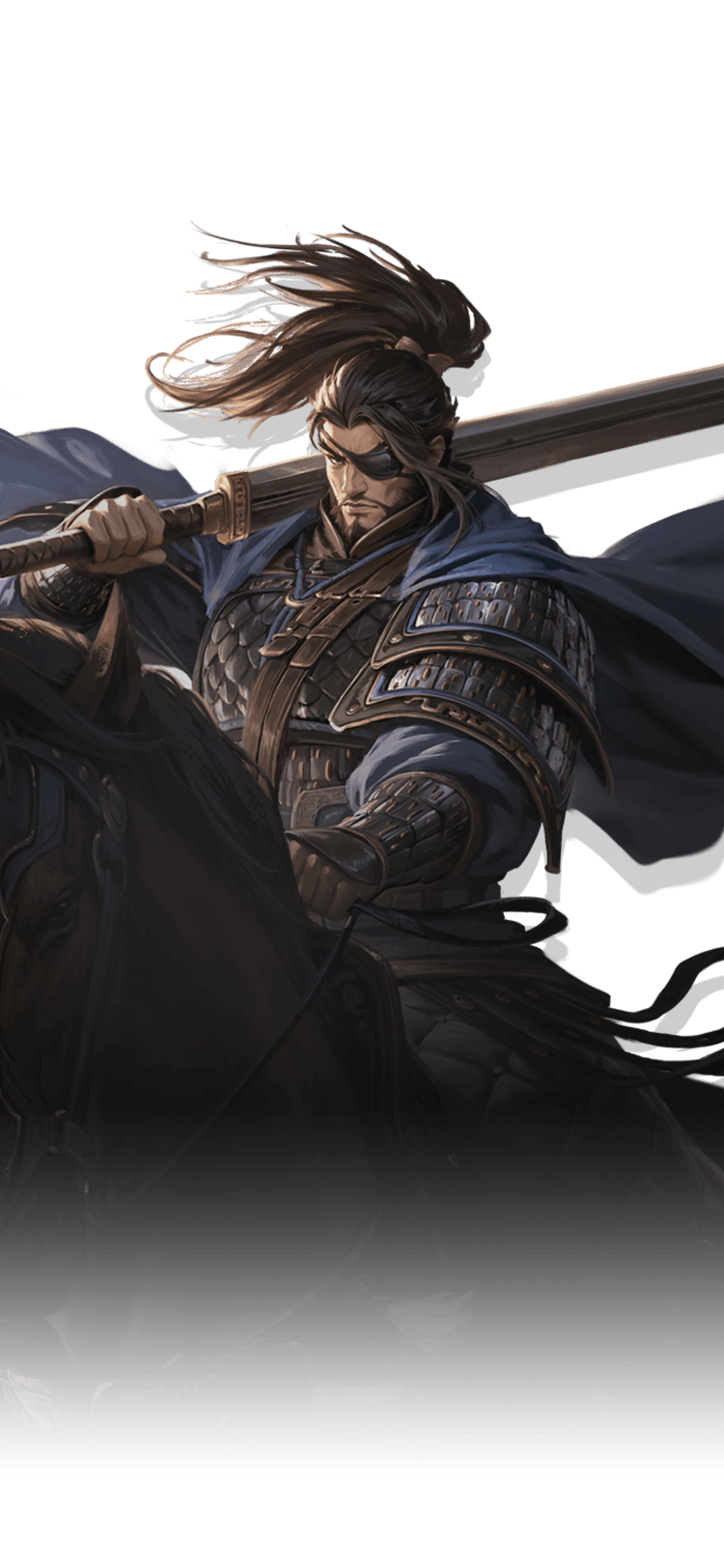

A loyal general of Wei and a descendant of Xiahou Ying. Famous for his courage and resilience—once continuing to fight after losing an eye in battle. He was a key early supporter of Cao Cao and known for his capable administration, such as diverting rivers to irrigate farmlands. He held high offices and was posthumously honored as “Marquis Zhong.”
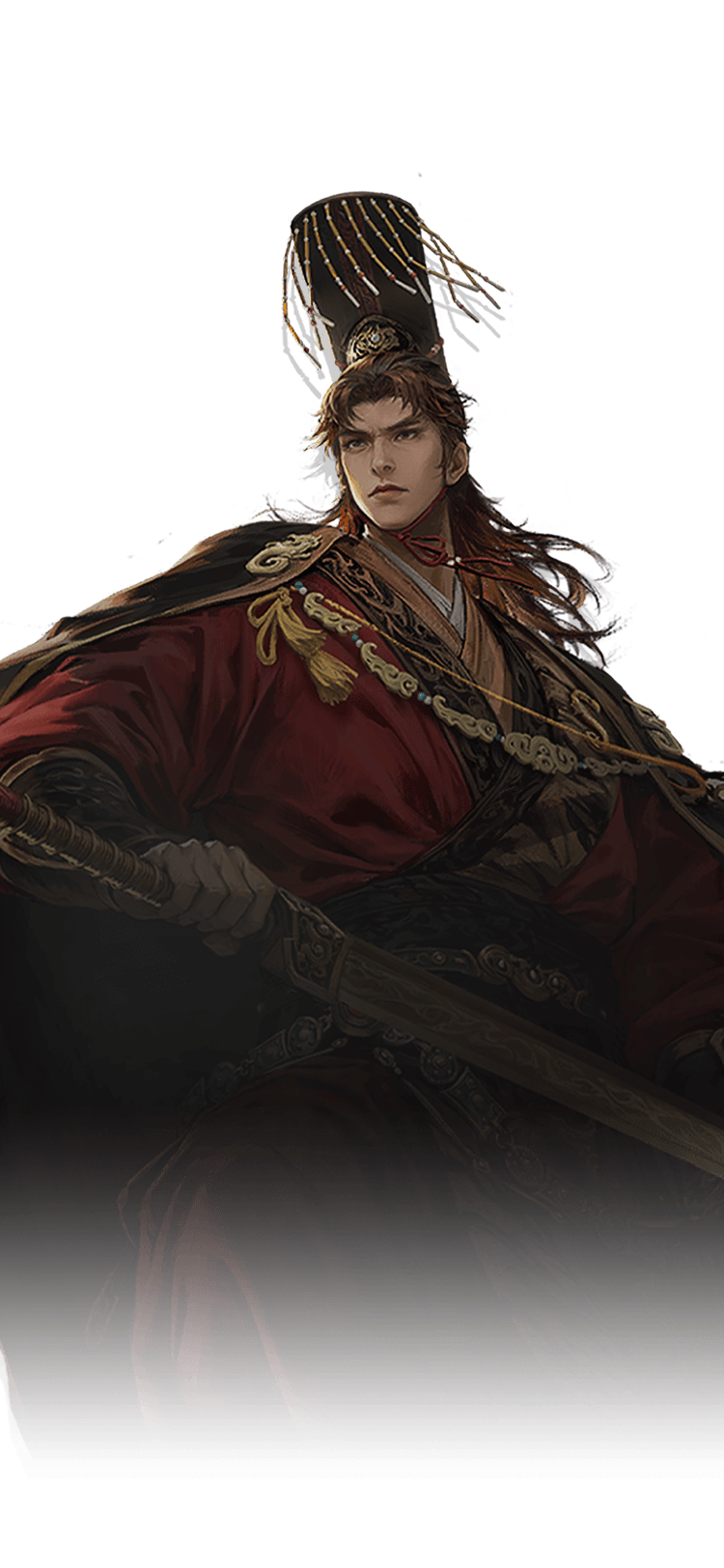

Son of Sun Jian and younger brother of Sun Ce. After Sun Ce's death, Sun Quan assumed leadership of Eastern Wu. He allied with Liu Bei to defeat Cao Cao at Red Cliffs and later seized Jing Province, executed Guan Yu, and repelled Liu Bei's counterattack. Initially recognizing Wei authority, he later declared himself emperor of Eastern Wu and moved the capital to Jianye. Posthumously honored as the Great Emperor of Wu.
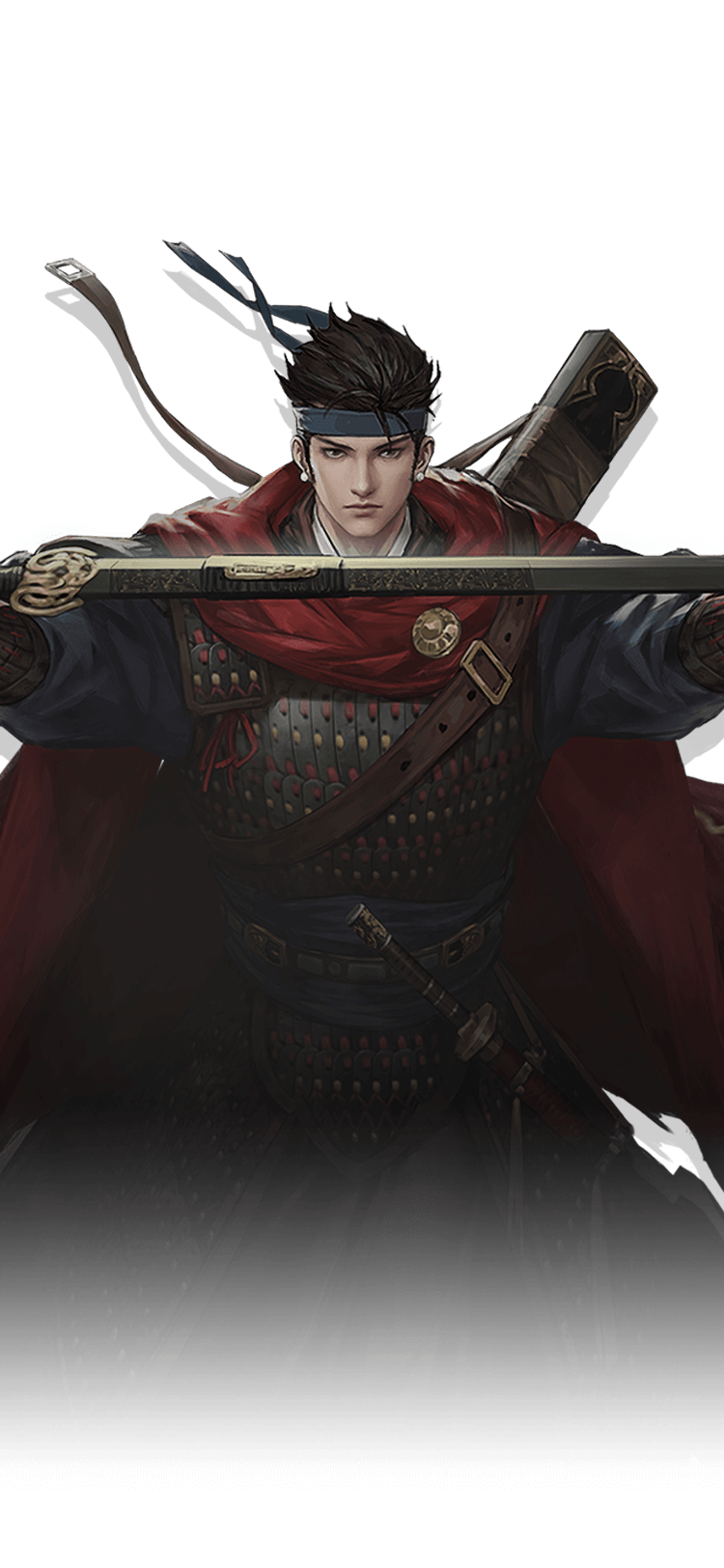

A brilliant statesman and general of Eastern Wu. He rose to prominence by defeating Liu Bei’s army in the Battle of Yiling with a decisive fire attack. Later, he triumphed at Shiting and was appointed Grand Chancellor. A trusted aide to Sun Quan for over four decades, Lu Xun was celebrated for his foresight, loyalty, and both civil and military excellence.
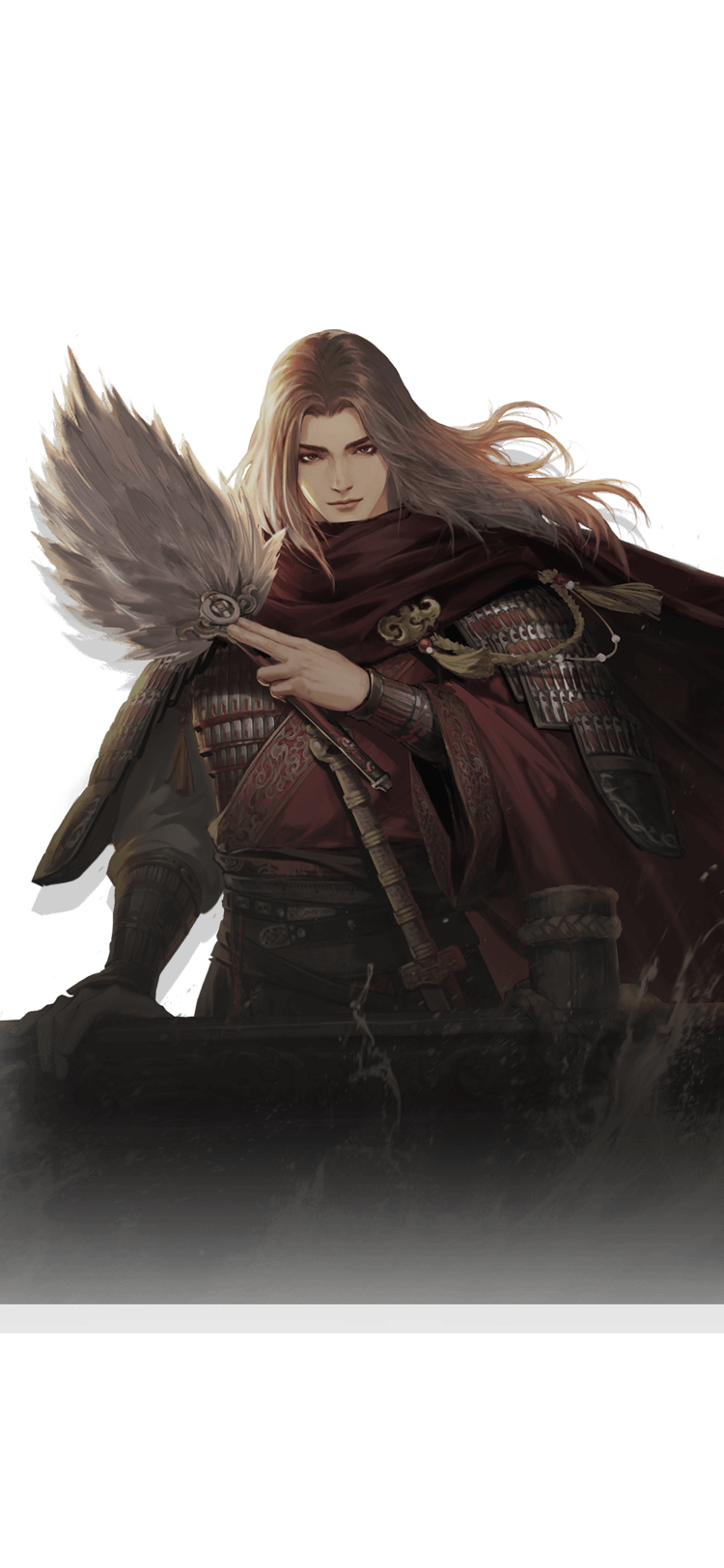

A famed general of Eastern Wu and childhood friend of Sun Ce. Known for his handsome appearance and musical talent—immortalized in the saying “Zhou Yu turns back for a flawed tune.” As commander at Red Cliffs, he orchestrated the crushing defeat of Cao Cao’s navy. He was later appointed Governor of Nanjun but died young at 36. His legacy endures as one of the greatest strategists of the era.
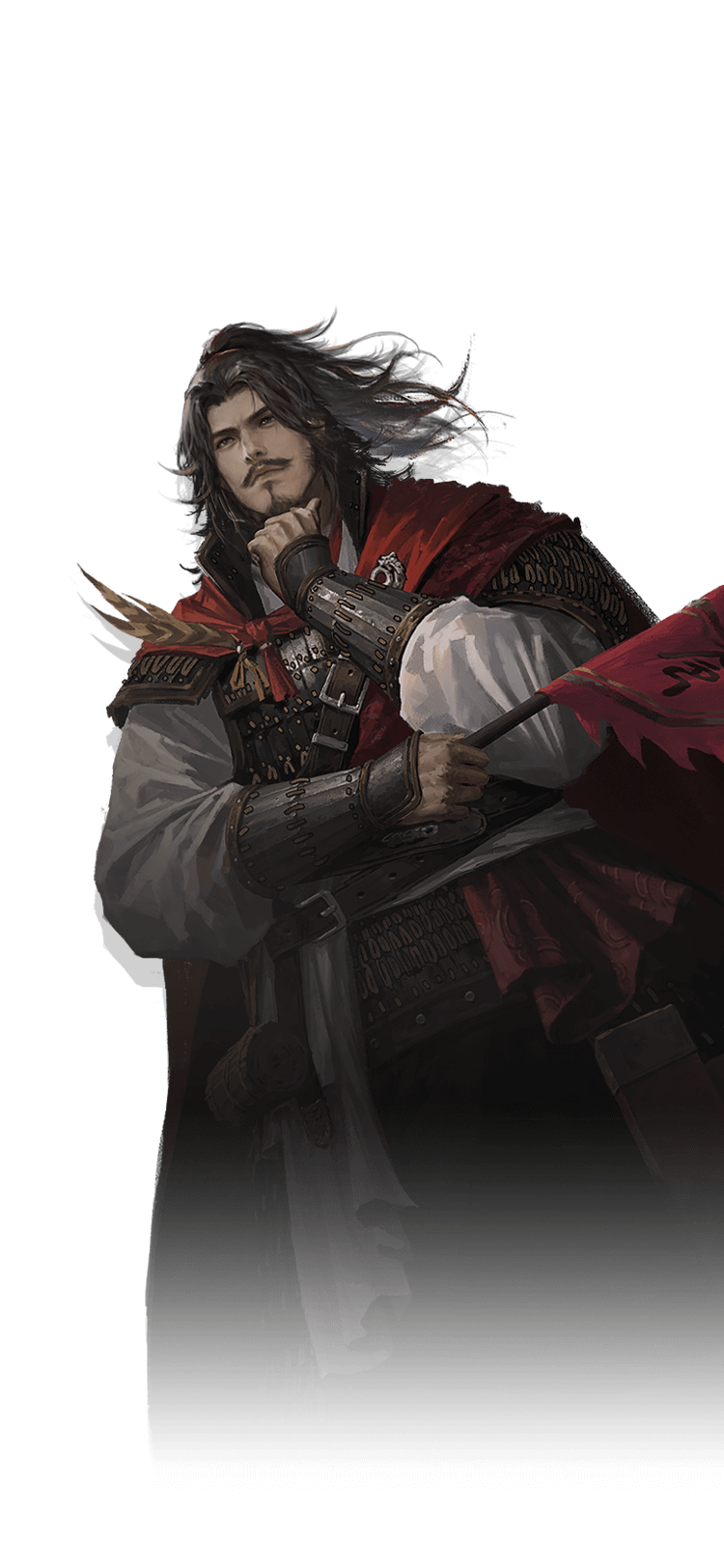

A top commander of Eastern Wu. Once known only for bravery, he gained fame through diligent study—earning the praise “view him in a new light after three days.” He played key roles in defeating Huang Zu, capturing Jing Province, and engineering the downfall of Guan Yu, vastly expanding Wu’s territory.
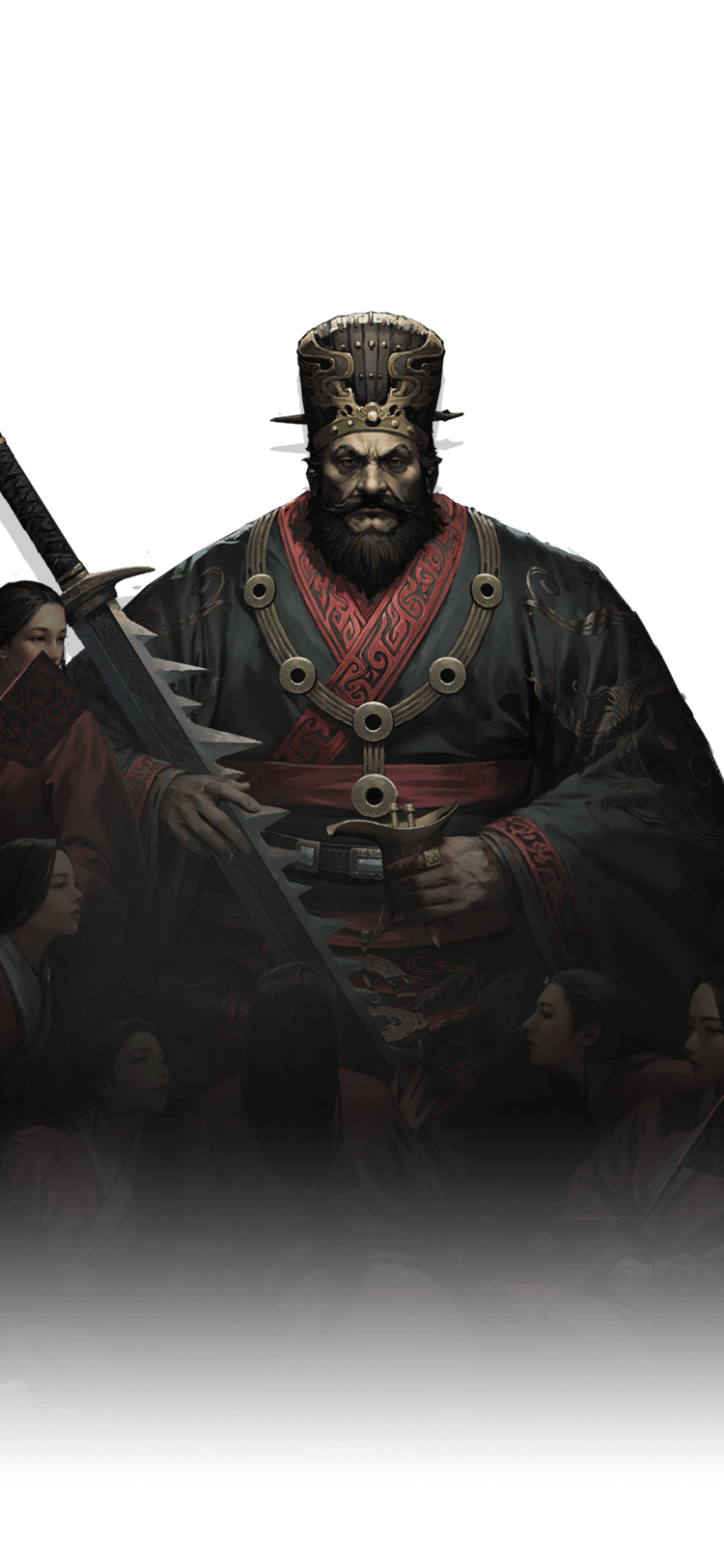

Initially summoned to suppress the palace eunuchs, Dong Zhuo seized power following He Jin’s death. He deposed the emperor and installed Emperor Xian as a puppet. His tyranny and cruelty sparked rebellion from regional lords. Eventually, he was assassinated by Lü Bu and Wang Yun.
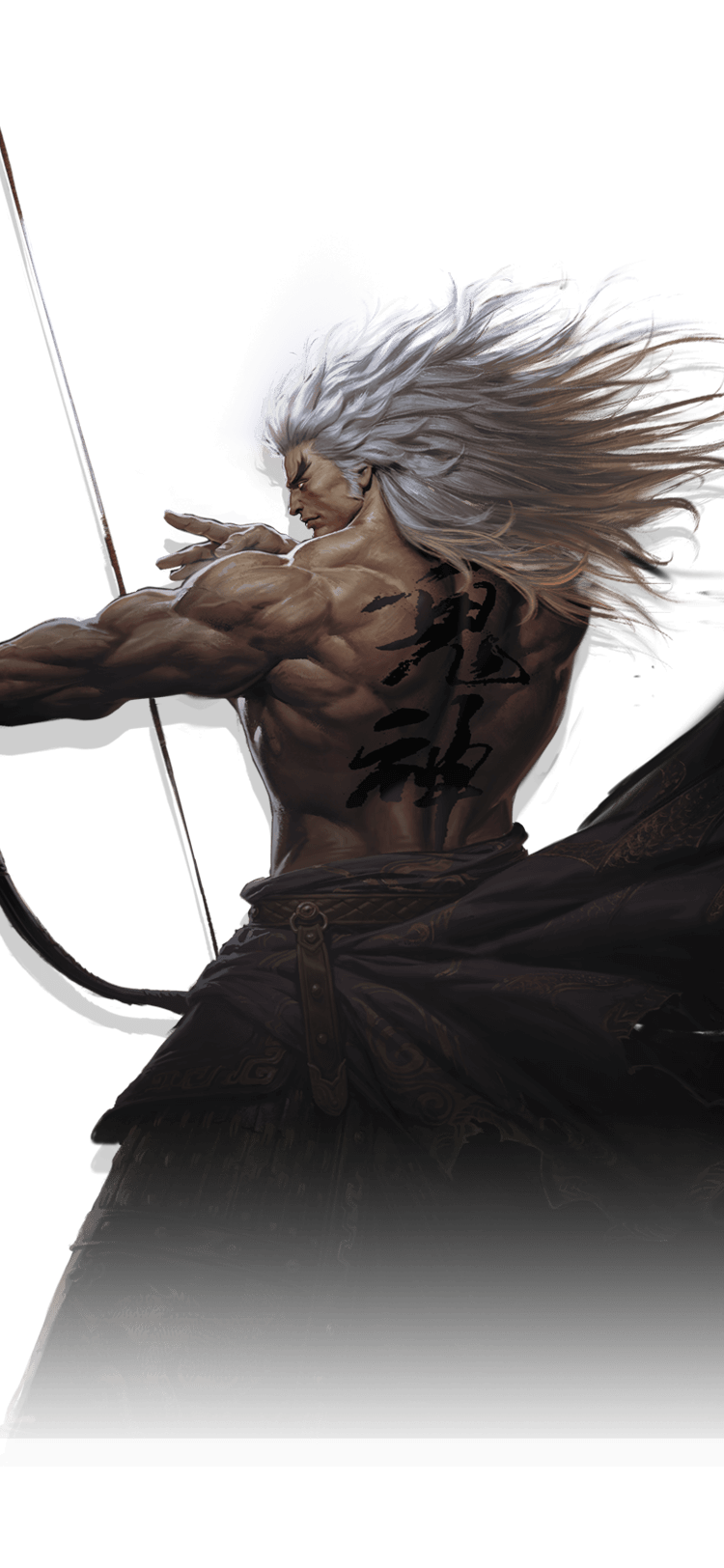

A fearsome warrior known as the “Flying General,” and remembered in the saying “Among men, Lü Bu; among horses, Red Hare.” He betrayed his adoptive fathers—first killing Ding Yuan, then Dong Zhuo—and was renowned for his martial prowess. Ultimately defeated by Cao Cao after internal betrayal, he was captured and executed.
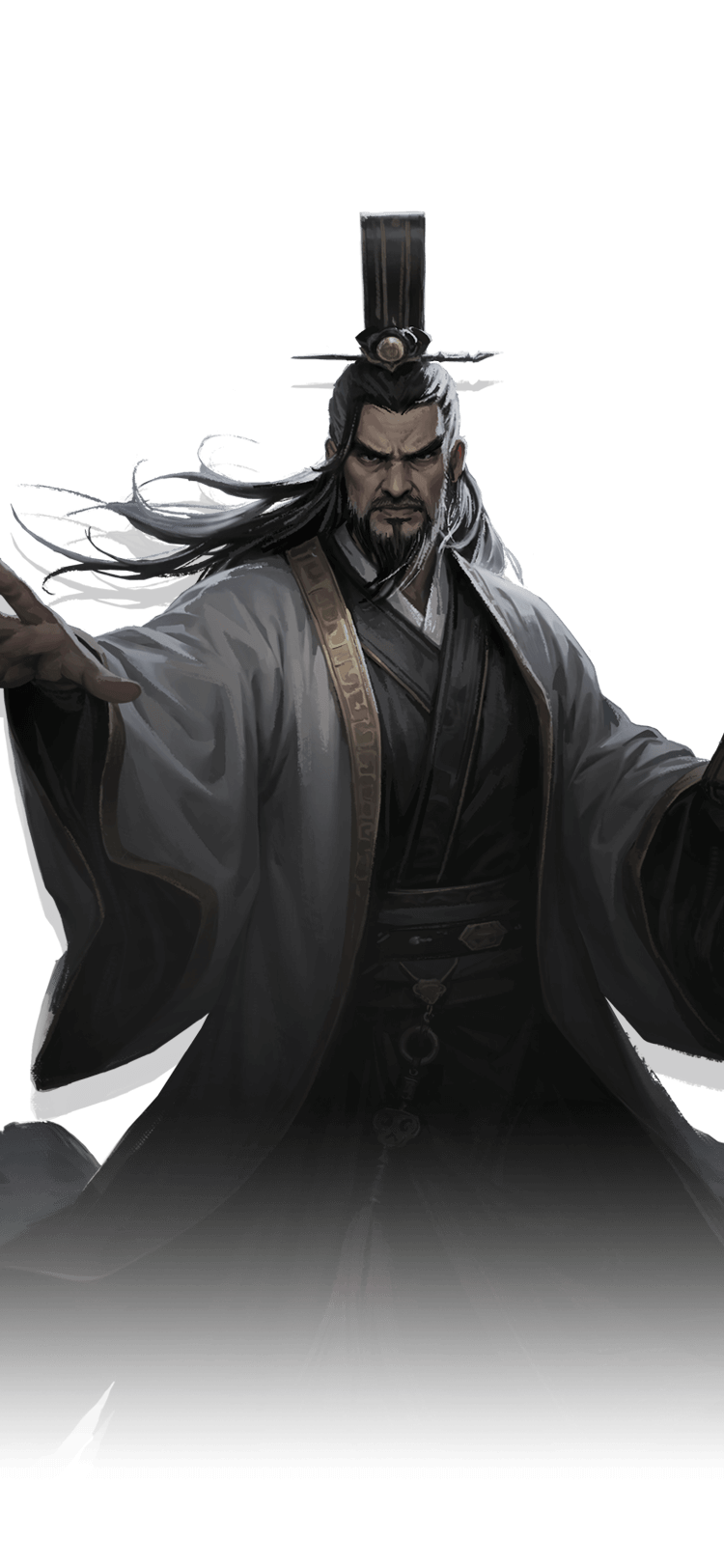

A warlord based in Hanzhong and the third Celestial Master of the Taoist Way of the Five Pecks of Rice. He ruled the region for nearly thirty years, blending theocratic rule with military control. Eventually, he surrendered to Cao Cao and was enfeoffed as Marquis of Langzhong.
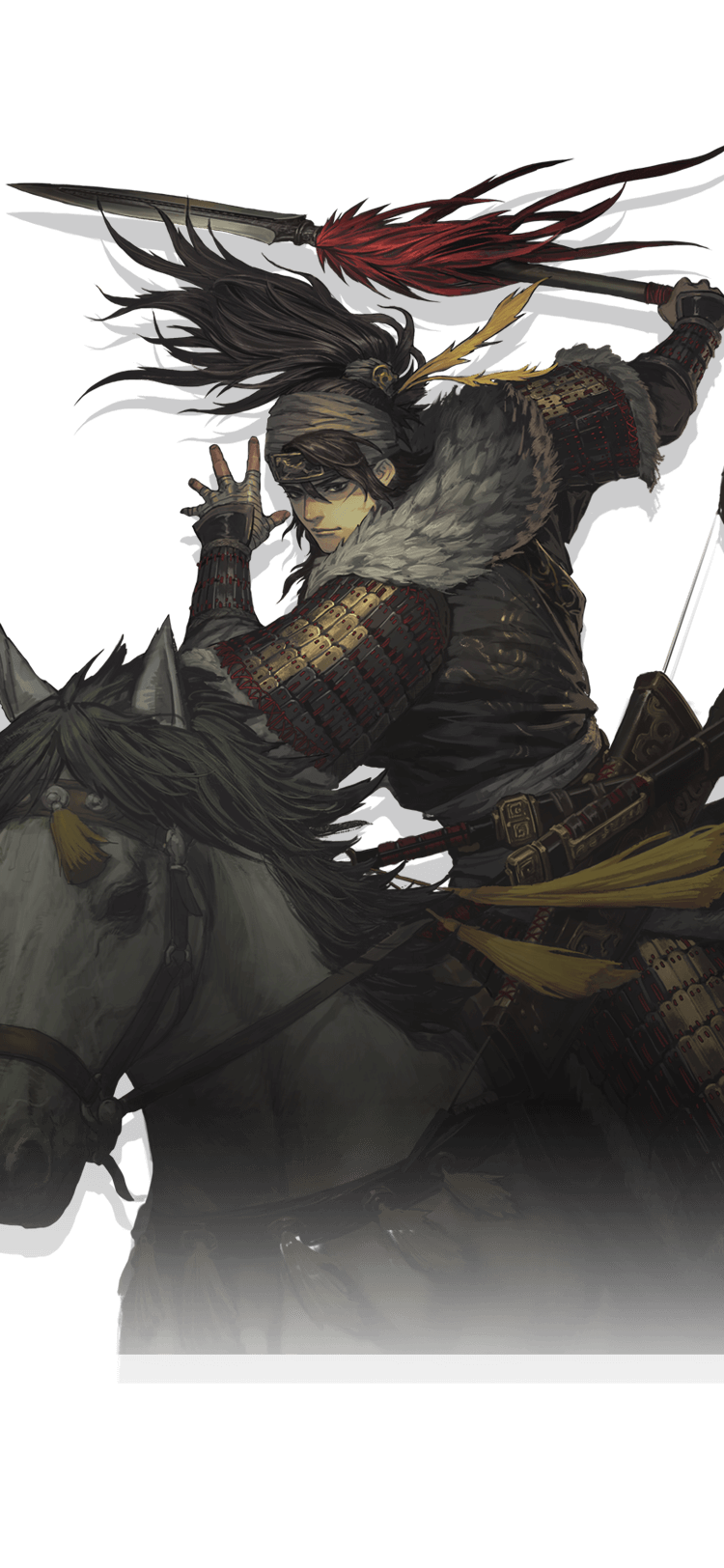

Son of Ma Teng, known for his early fame and resistance to Cao Cao at Tong Pass. Though defeated, he later rallied troops and joined Zhang Lu before eventually surrendering to Liu Bei. He contributed to the capture of Chengdu and was later titled General of Agile Cavalry and Marquis of Lixiang.
Generals
Battlefields
Sceneries
Featured
On a Seamless, Authentically Recreated 3D Sandbox Map, Players Can Freely Choose Perspectives and Rewrite the Three Kingdoms Saga Through Strategic Will.
©1997-2025 NetEase, Inc. All Rights Reserved










































































































